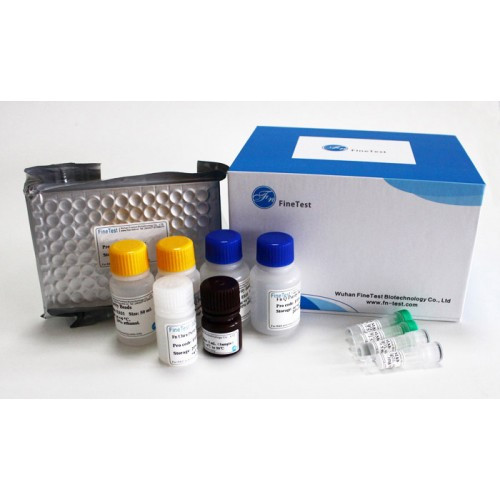Product Description
Recombinant Mouse Serine/threonine-protein kinase STK11 (Stk11) is available at Gentaur for Next week Delivery.
Gene Name: Stk11
Alternative Names : Liver kinase B1 homolog Lkb1
Expression Region : 1-433aa
AA Sequence : MDVADPEPLGLFSEGELMSVGMDTFIHRIDSTEVIYQPRRKRAKLIGKYLMGDLLGEGSYGKVKEVLDSETLCRRAVKILKKKKLRRIPNGEANVKKEIQLLRRLRHRNVIQLVDVLYNEEKQKMYMVMEYCVCGMQEMLDSVPEKRFPVCQAHGYFRQLIDGLEYLHSQGIVHKDIKPGNLLLTTNGTLKISDLGVAEALHPFAVDDTCRTSQGSPAFQPPEIANGLDTFSGFKVDIWSAGVTLYNITTGLYPFEGDNIYKLFENIGRGDFTIPCDCGPPLSDLLRGMLEYEPAKRFSIRQIRQHSWFRKKHPLAEALVPIPPSPDTKDRWRSMTVVPYLEDLHGRAEEEEEEDLFDIEDGIIYTQDFTVPGQVLEEEVGQNGQSHSLPKAVCVNGTEPQLSSKVKPEGRPGTANPARKVCSSNKIRRLSAC
Sequence Info : Full Length
Tag Info : N-terminal 10xHis-tagged and C-terminal Myc-tagged
Theoretical MW : 52.9 kDa
Storage Buffer : Tris/PBS-based buffer, 5%-50% glycerol. If the delivery form is lyophilized powder, the buffer before lyophilization is Tris/PBS-based buffer, 6% Trehalose, pH 8.0.
Endotoxin Level : Not tested-
Biological Activity : Not tested
Storage : Short term: -20°C; Long term: -80°C. Minimize freeze and thaw cycles.
Research Area : Cancer
Restriction : For Research Use Only. Not for use in diagnostic procedures, drug use, or for administration to humans or animals.
Relevance : Tumor suppressor serine/threonine-protein kinase that controls the activity of AMP-activated protein kinase (AMPK) family members, thereby playing a role in various processes such as cell metabolism, cell polarity, apoptosis and DNA damage response. Acts by phosphorylating the T-loop of AMPK family proteins, thus promoting their activity: phosphorylates PRKAA1, PRKAA2, BRSK1, BRSK2, MARK1, MARK2, MARK3, MARK4, NUAK1, NUAK2, SIK1, SIK2, SIK3 and SNRK but not MELK. Also phosphorylates non-AMPK family proteins such as STRADA, PTEN and possibly p53/TP53. Acts as a key upstream regulator of AMPK by mediating phosphorylation and activation of AMPK catalytic subunits PRKAA1 and PRKAA2 and thereby regulates processes including: inhibition of signaling pathways that promote cell growth and proliferation when energy levels are low, glucose homeostasis in liver, activation of autophagy when cells undergo nutrient deprivation, and B-cell differentiation in the germinal center in response to DNA damage. Also acts as a regulator of cellular polarity by remodeling the actin cytoskeleton. Required for cortical neuron polarization by mediating phosphorylation and activation of BRSK1 and BRSK2, leading to axon initiation and specification. Involved in DNA damage response: interacts with p53/TP53 and recruited to the CDKN1A/WAF1 promoter to participate in transcription activation. Able to phosphorylate p53/TP53; the relevance of such result in vivo is however unclear and phosphorylation may be indirect and mediated by downstream STK11/LKB1 kinase NUAK1. Also acts as a mediator of p53/TP53-dependent apoptosis via interaction with p53/TP53: translocates to the mitochondrion during apoptosis and regulates p53/TP53-dependent apoptosis pathways. In vein endothelial cells, inhibits PI3K/Akt signaling activity and thus induces apoptosis in response to the oxidant peroxynitrite. Regulates UV radiation-induced DNA damage response mediated by CDKN1A. In association with NUAK1, phosphorylates CDKN1A in response to UV radiation and contributes to its degradation which is necessary for optimal DNA repair
Function : Tumor suppressor serine/threonine-protein kinase that controls the activity of AMP-activated protein kinase (AMPK) family members, thereby playing a role in various processes such as cell metabolism, cell polarity, apoptosis and DNA damage response. Acts by phosphorylating the T-loop of AMPK family proteins, thus promoting their activity
Involvement in disease :
Subcellular location : Nucleus, Cytoplasm, Membrane, Mitochondrion, Note=Translocates to mitochondrion during apoptosis (By similarity), A small fraction localizes at membranes, Relocates to the cytoplasm when bound to STRAD (STRADA or STRADB) and CAB39/MO25 (CAB39/MO25alpha or CAB39L/MO25beta), PTEN promotes cytoplasmic localization (By similarity), SUBCELLULAR LOCATION: Isoform 2: Nucleus, Cytoplasm
Protein Families : Protein kinase superfamily, CAMK Ser/Thr protein kinase family, LKB1 subfamily
Tissue Specificity : Widely expressed. Isoform 2 is predominantly expressed in testis (at protein level).
Paythway :
Uniprot ID : Q9WTK7
 Euro
Euro
 British Pound
British Pound
 US Dollar
US Dollar








